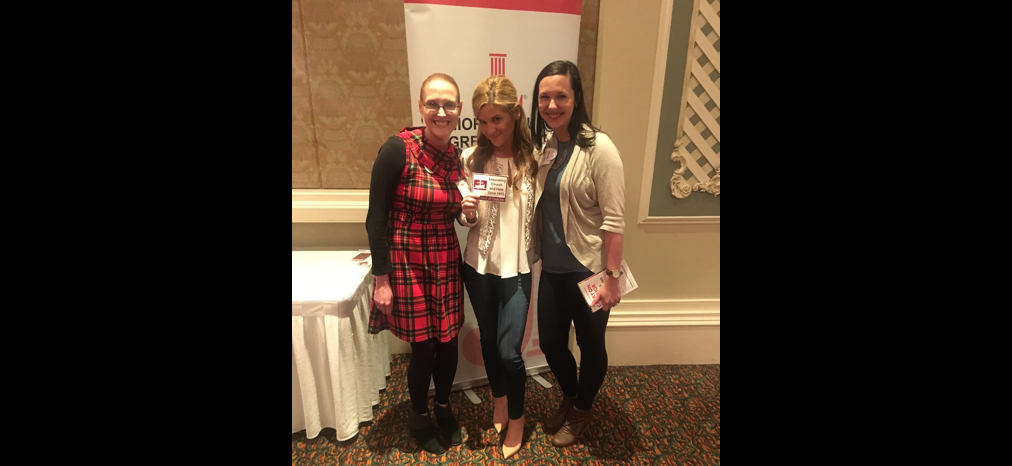The exhilaration of Easter is fading into memory, and we are left with more routine matters. Unfortunately, the matters that are becoming more and more commonplace have frightening implications: tweets, threats, tapes, etc. All should be sobering to us. We need to be taking these things seriously, but sometimes it feels like we can’t take them seriously because they are so ridiculous, yet also so pervasive. We feel like we are going crazy. This month is National Mental Health month, and I doubt that I am the only one who has felt my mental health suffering in the wake of the election. In fact, many mental health professionals report seeing an uptick in new patients who are suffering anxiety and stress since November 2017.
One author who writes about faith, mental health, and sobriety is Glennon Doyle Melton. I have learned so much from Glennon, including the that I can do hard things, that all people are Our People, and that our power comes from telling the truth, even if that truth is ugly. She is an amazing writer who has wrestled with her faith through the struggles in her life and come out on the other side stronger and more resilient. Her most recent book, “Love Warrior”, is about her broken and healed relationship with her husband. The book was very much anticipated, including being one of Oprah’s book club picks, and then right around the release date her husband filed for separation. However, Glennon refused to let this heartbreak derail her book tour. She didn’t hide her pain and brokenness but rather showed up to prove that one does not have to be perfect in order to tell her truth.
I recently had the opportunity to hear and meet Glennon in person. Her struggles not only spoke to me on a personal level but also a professional one. A major part of Glennon’s story (and her first book, “Carry On Warrior”) is her path to sobriety and recovery from addiction. In a blog post from a few years ago entitled, “Why the World Needs the Mentally Different,” Glennon writes about how sobriety is a form of social justice. It is a process of awakening to yourself and the world you inhabit while also recognizing the suffering and pain of others around you. She compares those living with any form of mental illness to canaries in a coal mine:
I’m the canary in the mine and you need my sensitivity because I can smell toxins in the air that you can’t smell, see trouble you don’t see and sense danger you don’t feel. My sensitivity could save us all. And so instead of letting me fall silent and die — why don’t we work together to clear some of this poison from the air?
Once people begin to recover, they are forced to become agents of change in the world. When I saw Glennon live, she explained that if she wants good schools, the right to marry, or clean water for herself, then she also has to want those things for her neighbor. Thus, if every person did the work of self-examination and truth seeking, the world would be a far different place.
For me, this means that I have to continue to do the difficult work of showing up. It may feel like I am accomplishing nothing when arrests of immigrants soar, especially among noncriminals; when I am uninvited to give presentations because churches don’t want to hear about sanctuary; when I get phone calls from people who need financial help to pay for an attorney. But I am learning that the work of social justice is never done and that it will always be messy, so I have to keep showing up — for myself and for my brothers and sisters. As Glennon said at her live talk, “Jesus said no to an easy button. No glory except walking through the story. No resurrection until we are open to our own crucifixion first. First the pain, then the rising.”
We are warriors, defenders of justice who show up even when it’s painful, because we will rise.

